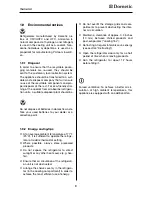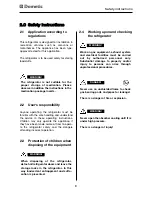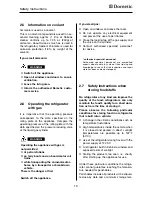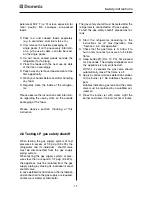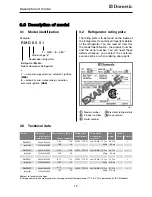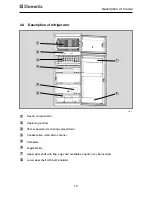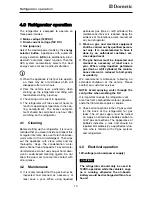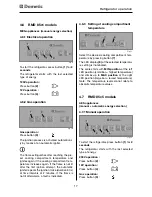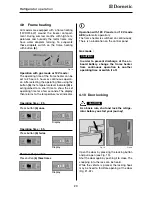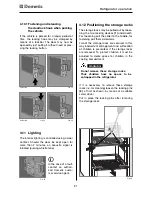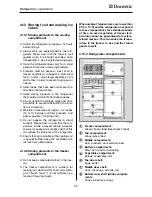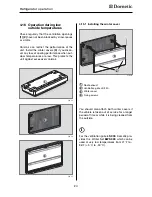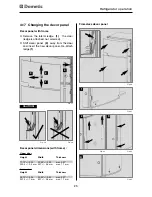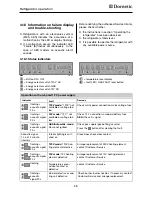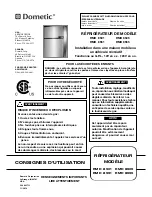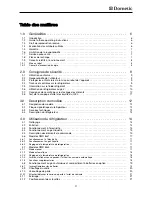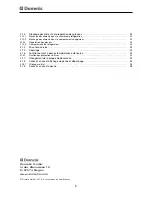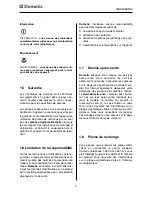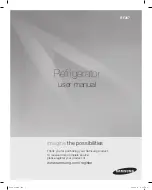
22
Refrigerator operation
4.13 Storing food and making ice
cubes
n
Switch the refrigerator on approx. 12 hours
before filling it.
n
Always store pre-cooled foods in the refri-
gerator. Make sure that the food is well
cooled when it is bought and also when
transporting it. Use insulated cooling bags.
n
Open the refrigerator door only for a short
period of time when removing products.
n
Products must be packed - best of all in
closed containers, wrapped in aluminium
foil or similar - and stored separately from
each other, in order to prevent drying out or
odours.
n
Allow foods that have been warmed up to
cool down before storing.
n
Avoid storing products in the refrigerator
that could emit volatile flammable gases.
n
Do not overfill the storage grids and com-
partments to prevent obstructing the inter-
nal air circulation.
n
Maintain a clearance of approx. 0.4 inches
(10 mm) between chilled products and
post-evaporator ("cooling fins").
n
Do not expose the refrigerator to direct
sunlight. Please bear in mind that the tem-
perature inside a closed vehicle increases
sharply if exposed to sunlight and that this
can reduce the efficiency of the refrigerator.
n
Ensure that air circulation of the cooling unit
is not obstructed. Keep the ventilation gril-
les free from obstructions.
4.13.1 Storing products in the cooling
compartment
4.13.2 Storing products in the freezer
compartment
n
Do not keep carbonated drinks in the free-
zer.
n
The freezer compartment is suitable for
making ice cubes and for short-term stora-
ge of frozen food. It is not suitable as a
means of freezing foods.
When ambient temperatures are lower than
50°F (+10°C) and the refrigerator is exposed
to these temperatures for extended periods
of time, an even regulation of freezer tem-
perature cannot be guaranteed for system-
related reasons. This can cause the tempe-
rature in the freezer to rise and the stored
goods to melt.
4.13.3 Refrigerator compartments
Freezer compartment :
already frozen food (deep-frozen food)
Top compartment:
convenience food
Middle compartment:
Dairy products, convenience food
Bottom compartment:
Meat, fish, food for defrosting
Vegetable compartment:
Salads, vegetables, fruit
Top door shelf:
Eggs, butter
Middle door shelf:
Cans, dressings, ketchup, jam
Bottom door shelf (drinks compart-
ment):
Drinks in bottles or bags
2
1
3
4
5
6
7
8
Fig. 29
1
2
3
4
5
6
7
8
Summary of Contents for RMD 8501
Page 57: ...www dometic com...

